Green Initiatives
Environmental Conservation
In addition to raising awareness of the importance of endangered species and wildlife conservation, the Zoological Society strives to incorporate as many green practices in our everyday operations as possible. Environmental conservation is critically important to conserving animals in the wild!
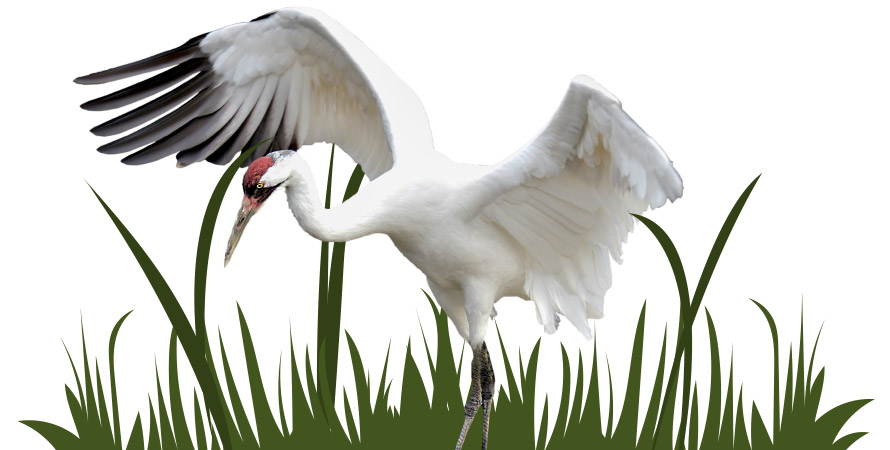
The Need for Environmental Conservation
The alarming rate of biodiversity loss across the globe and throughout Wisconsin indicates a greater need for environmental conservation and impact reduction. More than 99 percent of Wisconsin’s prairie and savanna habitat, which is home to endangered species such as the Rusty Patched Bumblebee and Poweshiek Skipperling, has been lost (source: DNR). By taking steps toward reducing our carbon footprint and diverting waste, we can contribute to the preservation of biodiversity and a healthy environment for all.
Green Success
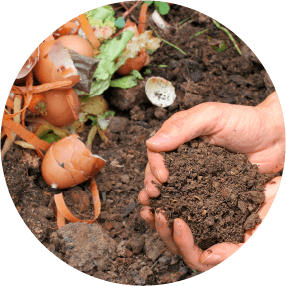
Conservation Education Composting
The Zoological Society implemented a composting program for staff in the Conservation Education building, with plans for the compost to be used in the Victory Garden pollinator gardens installed in the backyard of the building. Click here to view the Wisconsin DNR’s PDF guide to learn how you can start your own compost at home!
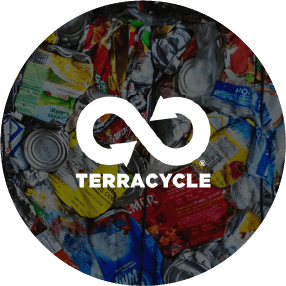
Terracycling
Items that are more difficult to recycle, such as toothpaste tubes, water filters and #6 plastic cups, can be recycled through the national Terracycling program. A total of 528 personal care items, 448 toothpaste tubes and well over 8,000 wrappers have been diverted from the landfill by our team since joining the program in 2017!
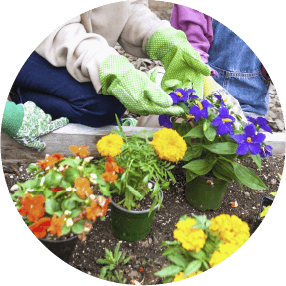
Victory Gardens
Starting in 2020, the Conservation Education building, with the help of Milwaukee’s Victory Garden Initiative, installed four garden beds in the backyard to be used for growing plants that support pollinators in Southeastern Wisconsin.
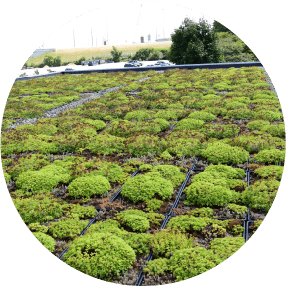
Green Roof
Made possible by a grant from WE Energies and the Milwaukee Metropolitan Sewerage District, the roof of the Conservation Education building was built to include vegetative cover to absorb rainwater and help insulate the building in both cool and warm weather.
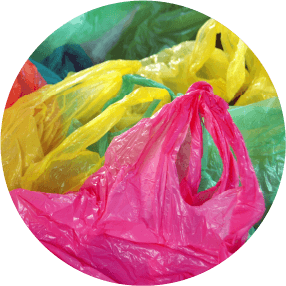
Plastic Bags
The Zoological Society has eliminated the use of plastic bags in its Zoo Classes and Camps and in membership packets. As of 2021, newsletters, brochures and magazines will no longer be mailed in a plastic bag.
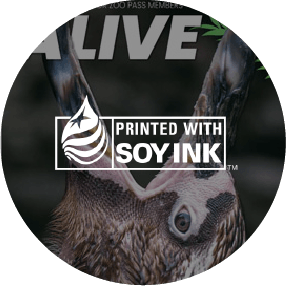
Publications
Our member publications are printed on recycled paper using soy ink.
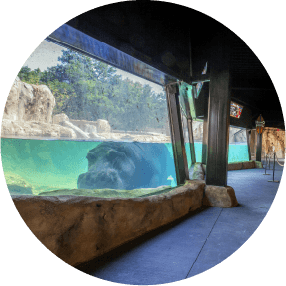
Hippo Habitat
The Zoological Society was a 50-50 partner with Milwaukee County in funding the new Dohmen Family Foundation Hippo Haven, which conserves millions of gallons of water per year through a filtration system that allows keepers to cycle the same water through the habitat all year instead of dumping the water out and refilling the pool on a consistent basis.
The Green Committee
The Green Committee at the Milwaukee County Zoo includes staff from across the Zoo and Zoological Society, along with Zoo Pride volunteers and vendor representatives. The Green Committee meets regularly to maintain sustainable environmental efforts across our organizations. The mission of the committee is to identify, advance, and promote policies and practices that minimize negative impact and maximize environmental benefits through comprehensive input and collaboration from all Zoo areas. Together, we have implemented numerous policies across our organizations, including procedures on environmentally friendly cleaning solutions, energy use reductions, and single-use plastics.
Learn More about the Milwaukee County Zoo’s efforts to reduce, reuse, and recycle across the Zoo.
DNR Citation: Wisconsin Department of Natural Resources. 2015. Changes and trends in ecosystems and landscape features. Chapter 4 in The ecological landscapes of Wisconsin: An assessment of ecological resources and a guide to planning sustainable management. Wisconsin Department of Natural Resources, PUB-SS-1131E 2015, Madison

